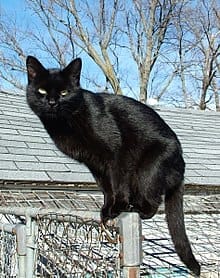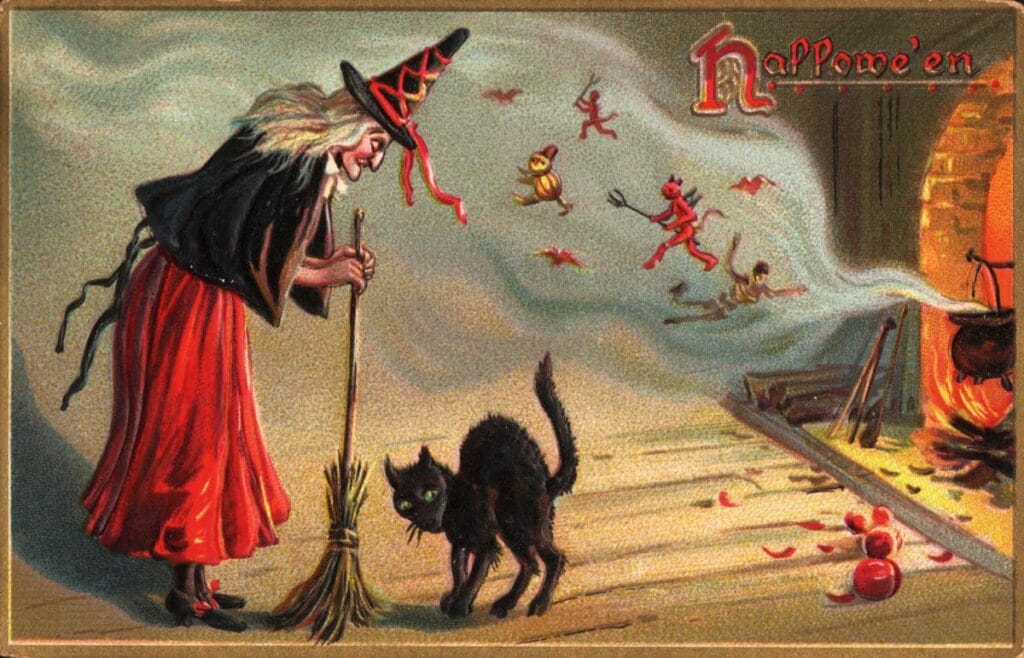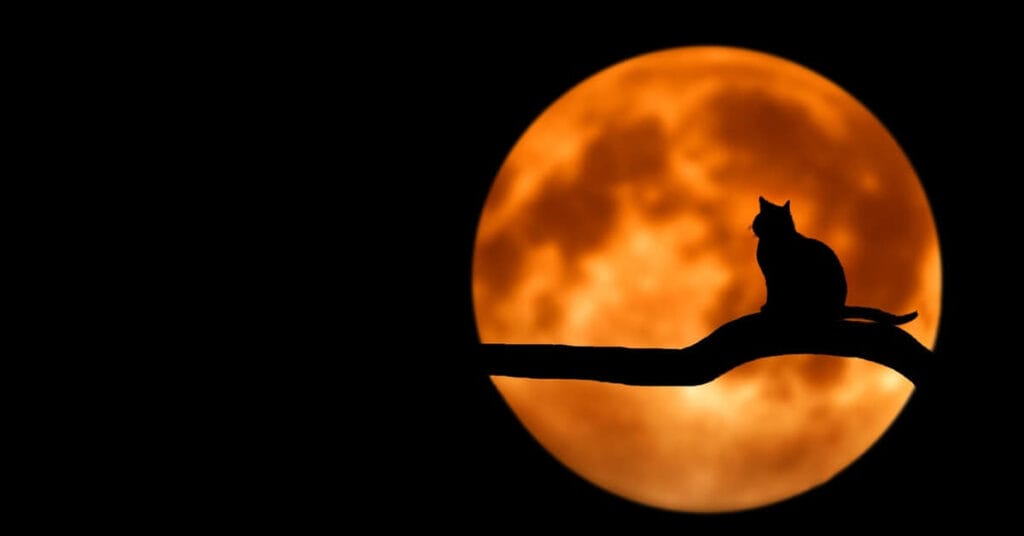Wondering What to Do If a Black Cats Crosses Your Path at Night?

A few minutes spent caressing a black cats will produce a loyal, lifelong friend. However, these dark, attractive, and social cats have been linked to tales, superstitions, and folklore throughout history that have either made them revered or feared.
It’s a myth that black cats are less likely to find homes than cats with other colors. However, because preconceptions still exist, shelter personnel may notice prejudice against black cats. You might be shocked to hear that, in addition to the negative mythology, there are both good and bad becomebeliefs about black cats. Black cats have long been associated with witches and their rites.
What Gives Black Cats Such a Bad Rap?
There are more black cats than any other color because the black gene is the most common in felines.
First superstition: Black cats are associated with witches.
Due to a medieval myth, black cats still have a negative reputation; therefore, if you are alarmed when you encounter one, it is most likely because of this. You might even consider it lucky if one of these gorgeous beasts passes you at any time of day or night. The story is said to have begun when a black cat was seen entering a home that was thought to be occupied by a witch. In the Middle Ages, black magic was linked to dark cats. In the past, black cats that prowl at night were thought to be either witches, their pets, or demons in animal form that the witches had sent out to spy on mankind.
From the early 13th century in Europe to the Salem Witch Trials in Massachusetts in the 17th century, black cats were murdered alongside people who were thought to be witches. Black cats have come to represent everything associated with witchcraft, especially during the Halloween season.

Second folk belief: Black cats portend terrible portent.
The black cat is another symbol of misfortune and, tragically, death. It is believed that this dislike to dark cats dates back to the Middle Ages, when birds with dark feathers or fur, such crows and ravens, were a sign of coming doom. In 16th-century Italy, when a black cat would lie on someone’s bed when they were ill, it was believed that death was imminent. In modern North America, black cats are still associated with negative connotations; it is lucky to come into contact with a white cat, but unlucky with a black one.
A black cat in a funeral procession signals the impending death of another family member. Another bad omen is if a black cat starts to run away from you. Fortunately, all of these ideas are only superstition.

Third folk belief: Black cats are lucky.
Black cats are seen as lucky in many ways. Because they resembled the cat-headed goddess of the home, fertility, and immunity to disease, Bastet, black cats were highly revered in ancient Egypt. Other parts of the world also consider black cats to be lucky.
- In Asia and the UK, having a black cat means you’ll be prosperous in life.
- Finding a black cat in Japan can boost your chances of finding true love.
- Receiving a black cat as a gift can be lucky for the bride and her new husband in some areas of England.
- In Europe, sailors who board their vessel with a black cat do so without issue.
- If a black cat appears at your door or on your porch in Scotland, good luck will shortly arrive.
- In France, if you see a black cat, great things are about to happen.
Other cultures see spotting a black cat coming toward you, having a dream about one, or discovering a lone white hair on its gleaming ebony fur as lucky signs.
READ NEXT: Munchkin Cat: Cat Breed Profile

